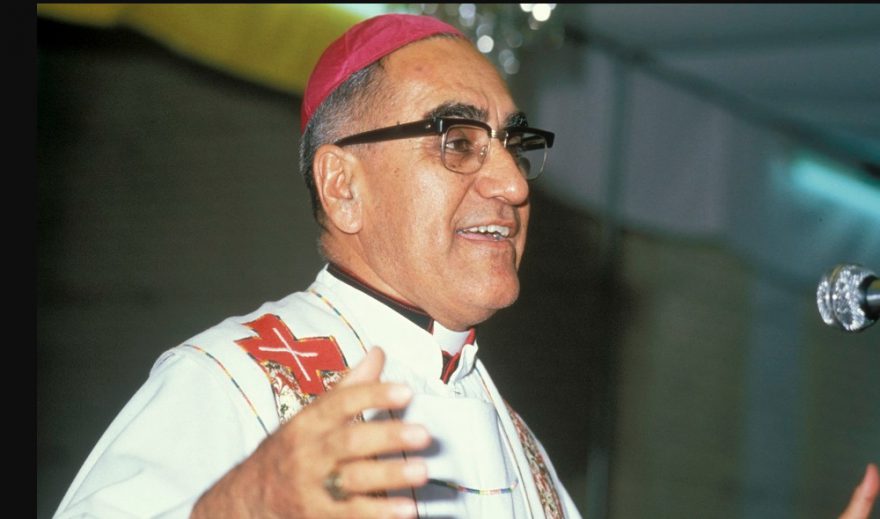Oscar Romero, Presente
Thirty-nine years ago today, Salvadoran Archbishop Oscar Romero was assassinated while giving mass. His killers have never been brought to justice.

Thirty-seven years ago today, Oscar Romero, the Catholic Archbishop of El Salvador, was assassinated while he was holding mass in a plot hatched and carried out by US-backed far-right forces.
Despite the rising tide of violence and repression carried out by these forces in his country, most of Romero’s life as a priest was steadfastly apolitical. At a time when large swathes of Catholic leadership and laypeople were being radicalized and joining the fight against the miserable inequality overseen by the Salvadoran military’s ruling elites, the conservative church hierarchy chose him as archbishop because he had no history of political activism or even any publicly visible political opinions.
But when a close friend and fellow priest, Rutilio Grande, was murdered by right-wing forces in 1977 for his organizing with the poor, Romero was changed. He began to use his position to speak out against the ruling regime and its crucial backers, the United States. That advocacy led to his murder just three years later.
The day before his murder, Romero gave his most famous homily from the national cathedral in San Salvador, broadcast via radio throughout the country, in which he spoke directly to the country’s soldiers:
I would like to make a special appeal to the men of the army, and in particular, to the troops of the National Guard, the police, the garrisons.
Brothers, you are part of our very own people. You kill your own campesino brothers. In the face of an order to kill given by a man, the law of God that says “thou shalt not kill” must prevail.
No soldier is obliged to obey an order contrary to the law of God. No one has to comply with an immoral law.
It is time now that you recover your conscience and obey its dictates rather than the command of sin. The church, defender of the rights of God, of the law of God, of human dignity, of personal dignity, cannot remain silent before such an abomination. We want the government to take seriously that their reforms mean nothing if they come bathed in so much blood.
In the name of God, then, and in the name of this suffering people whose cries rise to heaven more tumultuously every day, I beseech you, I beg you, I order you, in the name of God, stop the repression!
Because Romero’s death came just as the Salavadoran civil war was beginning, and El Salvador continued to be ruled by a hard-right regime that had little interest in exposing the truth about his death until 2009, no one was held to account for the assassination until a US-based human rights group, the Center for Justice and Accountability, began to assemble a case against the men responsible for the killing. Matt Eisenbrandt was one of those attorneys, and he tells the story of Romero’s death and the case against his killers in Assassination of a Saint: The Plot to Murder Oscar Romero and the Quest to Bring His Killers to Justice.
In February, I interviewed Eisenbrandt about the book, discussing Romero’s transformation and assassination, the history of the Salvadoran civil war, and the US responsibility for a conflict that saw some of the most brutal human rights abuses of the twentieth century.
You can listen to the interview here.